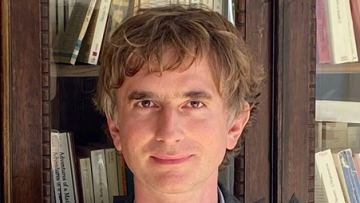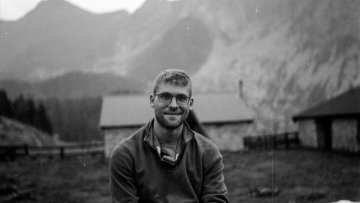Emmanuel Breuillard, the Sadleirian Professor of Pure Mathematics in Cambridge, has been appointed to the Professorship of Pure Mathematics in Oxford starting on 1 January 2022. Held by Professor Roger Heath-Brown FRS from its inception in 1999 until his retirement in 2016, the Professorship of Pure Mathematics is one of the most prestigious statutory positions in Oxford. Professor Breuillard will be a fellow of Worcester College.
How do I obtain reliable knowledge about the world? *
Louis, A
A Teacher’s Guide to Science and Religion in the Classroom
146-151
(29 Jan 2018)
Introduction to Molecular Simulation
Sulc, P
Doye, J
Louis, A
QUANTITATIVE BIOLOGY: THEORY, COMPUTATIONAL METHODS, AND MODELS
179-205
(2018)
https://www.webofscience.com/api/gateway?GWVersion=2&SrcApp=elements_prod_1&SrcAuth=WosAPI&KeyUT=WOS:000481799300011&DestLinkType=FullRecord&DestApp=WOS_CPL
DNA Systems Under Internal and External Forcing An Exploration Using Coarse-Grained Modelling Supervisor's Foreword
Louis, A
DNA SYSTEMS UNDER INTERNAL AND EXTERNAL FORCING: AN EXPLORATION USING COARSE-GRAINED MODELLING
VII-+
(2019)
https://www.webofscience.com/api/gateway?GWVersion=2&SrcApp=elements_prod_1&SrcAuth=WosAPI&KeyUT=WOS:000544814000001&DestLinkType=FullRecord&DestApp=WOS_CPL
A Simple Plankton Model with Complex Behaviour
Moroz, I
Cropp, R
Norbury, J
The Foundations of Chaos Revisited: From Poincaré to Recent Advancements
181-194
(30 Apr 2016)
Curvature is a way of measuring the distortion of a space from being flat, and it is ubiquitous in Science. Ricci Curvature, in particular, appears in Einstein’s equations of General Relativity. It controls the heat diffusion in general ambient spaces and it plays a fundamental role in Hamilton-Perelman’s solution of the Poincaré conjecture and of Thurston’s geometrisation conjecture.
Learning-based quantum error mitigation
Strikis, A
Qin, D
Chen, Y
Benjamin, S
Li, Y
PRX Quantum
volume 2
issue 4
(10 Nov 2021)
Artur Ekert on the physical reality of - √NOT
Ekert, A
ALAN TURING: HIS WORK AND IMPACT
102-105
(2013)
https://www.webofscience.com/api/gateway?GWVersion=2&SrcApp=elements_prod_1&SrcAuth=WosAPI&KeyUT=WOS:000324929800019&DestLinkType=FullRecord&DestApp=WOS_CPL
Requirements for a Quantum Computer
Ekert, A
Kay, A
QUANTUM INFORMATION: FROM FOUNDATIONS TO QUANTUM TECHNOLOGY APPLICATIONS, VOL 2
403-435
(2019)
https://www.webofscience.com/api/gateway?GWVersion=2&SrcApp=elements_prod_1&SrcAuth=WosAPI&KeyUT=WOS:000546321200021&DestLinkType=FullRecord&DestApp=WOS_CPL



